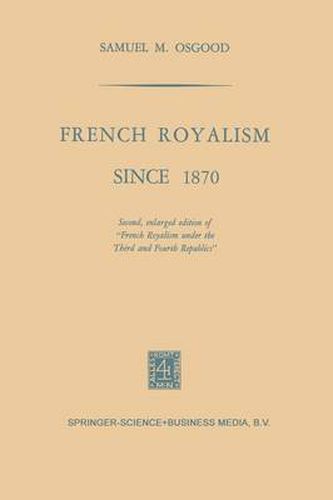Readings Newsletter
Become a Readings Member to make your shopping experience even easier.
Sign in or sign up for free!
You’re not far away from qualifying for FREE standard shipping within Australia
You’ve qualified for FREE standard shipping within Australia
The cart is loading…






This title is printed to order. This book may have been self-published. If so, we cannot guarantee the quality of the content. In the main most books will have gone through the editing process however some may not. We therefore suggest that you be aware of this before ordering this book. If in doubt check either the author or publisher’s details as we are unable to accept any returns unless they are faulty. Please contact us if you have any questions.
Let them come forward, they are thirsty for the sight of a King, said Henri IV to his followerswho were trying to push back the curious crowds as he entered Paris in February, 1594. It is perhaps to be regretted that seven kings (to say nothing of two emperors) have since more than quenched the French’s taste for royalty, because they have long been in need of - and periodically have sought - a symbol of national unity. Modem-day France has had far more than her share of revolutions, counterrevolutions, uprisings, days, coups, affairs, crises, scandals - and constitution drafting. While it would be an over simplification to interpret this endemic strife as a seesaw conflict between two well-integrated blocs with the ideology of the Great Revolution as the dividing issue, the fact remains that since 1789 political divisions and quarrels arnong Frenchmen have been deep, bitter, and fundamental. After 1870, a Republic may have been the one solution which divided Frenchmen the least (to borrow an expression from Monsieur Thiers) ; but like any and all of the preceding alternatives it was to incur the relentless, irreconcilable opposition of important segments of the population. This study deals with those individuals and organ izations which continued to advocate, and sought to bring about a return to the monarchy under the Third and Fourth Republics.
$9.00 standard shipping within Australia
FREE standard shipping within Australia for orders over $100.00
Express & International shipping calculated at checkout
This title is printed to order. This book may have been self-published. If so, we cannot guarantee the quality of the content. In the main most books will have gone through the editing process however some may not. We therefore suggest that you be aware of this before ordering this book. If in doubt check either the author or publisher’s details as we are unable to accept any returns unless they are faulty. Please contact us if you have any questions.
Let them come forward, they are thirsty for the sight of a King, said Henri IV to his followerswho were trying to push back the curious crowds as he entered Paris in February, 1594. It is perhaps to be regretted that seven kings (to say nothing of two emperors) have since more than quenched the French’s taste for royalty, because they have long been in need of - and periodically have sought - a symbol of national unity. Modem-day France has had far more than her share of revolutions, counterrevolutions, uprisings, days, coups, affairs, crises, scandals - and constitution drafting. While it would be an over simplification to interpret this endemic strife as a seesaw conflict between two well-integrated blocs with the ideology of the Great Revolution as the dividing issue, the fact remains that since 1789 political divisions and quarrels arnong Frenchmen have been deep, bitter, and fundamental. After 1870, a Republic may have been the one solution which divided Frenchmen the least (to borrow an expression from Monsieur Thiers) ; but like any and all of the preceding alternatives it was to incur the relentless, irreconcilable opposition of important segments of the population. This study deals with those individuals and organ izations which continued to advocate, and sought to bring about a return to the monarchy under the Third and Fourth Republics.